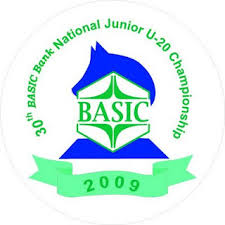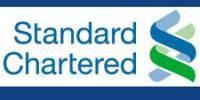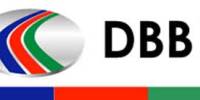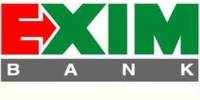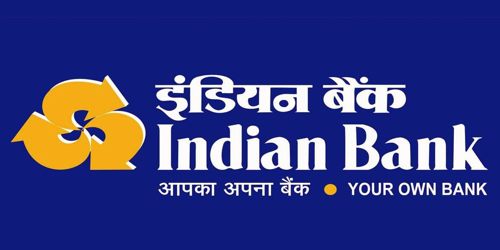Origin Of The Report
The internship program is an integral part of the MBA (Master of Business Administration) program that all the students have to undergo of JagannathUniversity. The students are sent to various organizations where they are assigned to one or more projects. At the end of the program, the internships are required to place the accomplishments and findings of the project through the writing of the internship report covering the relevant topics. During this program, Supervisor guides each student.
This report is the result of a 3 months (December 1, 2011 to February 29, 2012) internship program in BASIC Bank Limited.
Objective Of The Study
This study is aimed at providing me very useful practical knowledge about banking operation system in Bangladesh. It will also help me to develop my concept of banking system and it operations. The main objective of the study is to evaluate or examine the Foreign Exchange operation followed in the BASIC Bank Limited in our country. The specific objectives of the study are as follows:
a) To study the financing procedures of the Export by the client of BASIC Bank Limited.
b) To study Import financing procedure follows by BASIC Bank Limited.
c) To evaluate the handling of Remittance (Both Inward and Outward) procedure follows by BASIC Bank Limited.
d) To identify the loopholes if any, in the Export, Import and Remittance procedure.
e) To know about the Previous & Present banking system of BASIC Bank Ltd.
f) To study strengths & weakness of BASIC Bank Limited.
g) To relate theoretical knowledge to practical experience in several functions of the bank.
h) To be acquainted with how bank perform its operation.
i) To present my observation and suggestions to the bank.
j) To make myself more confident and active in future to handle my job.
Purpose
Knowledge and learning become perfect when it is associated with theory and practice. Theoretical knowledge gets its perfection with practical application. As our educational system predominantly text based, inclusion practical orientation program, as an academic component is as exception to the norm. As the parties’ educational institution and the organization substantially benefit from such a program, it seems a “win-win situation”. It establishes contracts and networking contracts. Contracts may help to get a job. That is, students can train and prepare themselves for the job market.
A poor country like Bangladesh has an overwhelming number of unemployed educated graduates. As they have no internship experience they have not been able to gain normal professional experience or establish networking system, which is important in getting a job. That’s why practical orientation is a positive development in professional area. Recognizing the importance of practical experience, Faculty of Business Studies has introduced a three months practical exposure as a part of the curriculum of Master of Business Administration program. In such state of affairs the present aiming at analyzing the experience of practical orientation related to an appraisal of BASIC Bank Limited.
Methodology
This report has been prepared on the basis of experience gathered during the period of internship from December 1, 2011 to February 29, 2012. For preparing this report, I have undergone discussion, collected data and to the selected Officers and interviewed with some of them. I also studied different circulars and files of the bank. I have collected my information/data from the following sources, which helped me to make this report. The source has divided by two parts. Such as: primary sources and secondary sources. Primary sources include interviews and conversation with officers and executives of the bank of different divisions and department. Secondary sources of information include Annual Report, Internet, General Report, Investment Manual, General Banking Manual, Foreign Exchange Manual, Banking related Books, Selected books journals and other publication etc.
Scope
The focus of this report will be on various functional areas in Department of Foreign Exchange BASIC Bank Limited. Attempts will be made particularly on the performance in each area. Specific emphasis will be given on the Import & Export financing and Remittance (Inward and Outward) areas.
Limitations
Although the officials were so busy, they gave me wholehearted cooperation in the time of my internship & also in preparing this report. While collecting data, I had restricted access to some data for confidentiality purpose. As I had to spend enough time to learn the types of job assigned to me & also copes up with the newer type of professional work environment with new people & the process of working. Actually banking sector is very sensitive and competitive by its nature. So, data of this report is not available and the interviewees might not disclose accurate facts and figures about Foreign Exchange and other activities. However I faced the following problems during the study.
- One of the major limitations is the shortage of internship period. Since three month is not enough to know everything of a Bank, so this report does not contain all the area of BASIC Bank Ltd.
- Because of the limitations of various sources of information the report doesn’t contain many important information and data. All scheduled commercial bank regulated by the instruction do central bank. Most of the instructions are confidential to the commercial bank. So, I was incapable to provide valuable information.
- The main constraints of the study are inadequate access to information, which has hampered the scope of analysis required for the study.
- Due to time limitation; many of the aspects could not be discussed in the present.
Historical background of BASIC Bank limited
BASIC Bank Limited (Bangladesh Small Industries and Commerce Bank Limited) established as a banking company under the erstwhile Company Act 1913 launched its operation in January 21, 1989. It is governed by the Banking Companies Act 1991.
The Bank started as a joint venture enterprise of the BCC Foundation with 70 percent shares and the Government of Bangladesh with 30 percent shares. The BCC Foundation being nonfunctional following the closure of the BCCI, the Government of Bangladesh took over 70 percent shares of the BCC Foundation on 4th June 1992 and become 100 percent owner of the Bank.
Adjudged as one of the soundest bank in Bangladesh, BASIC Bank is unique in its objectives. It is a bland of Development and Commercial Banking Functions.
Steady growth in client base and their high retention rate since Bank’s inception testify to the immense confidence they repose on its services. Diversified products in bath liability and assets sides particularly a wide range of lending products related to development of small industries and micro enterprise, and commercial and trading activities attract entrepreneurs from varied economic fields. Along with promotion of products special importance is given to individual clients through providing personalized services. In fact individuals matter in this Bank. This motto has been followed for development clientele as well as human resources of the Bank.
Objective of BASIC Bank limited
To be a dynamic leader in the financial market in innovating new products as to the needs of the society. To earn positive economic value addition (EVA) each year to come. To top the list in respect of cost efficiency of all the commercial Banks. To become one of the best financial institutions in Bangladesh economy participating in the most significant segments of business market that we serve.
Strategies Of BASIC Bank Limited
The business of banking consists of borrowing and lending. As in other businesses operations must be based on capital, but banks employ comparatively little of their own capital in relation to the total volume of their transactions. The purpose of capital and reserve accounts is primarily to provide an ultimate cover against losses on loans and investments.
Hence there are readily insurance agents who are mostly there to assure the prospective customers as to how they can restore themselves should there be any losses. Furthermore deposit they have to gather within a given span of time. Now that, to some extent assures the constant inflow of cash. Most importantly, the contracts of the bank Manager assure highly valued corporate clients to make deposits and in return the bank is benefited. It is mainly a familial management style that prevails in the corporate climate of BASIC Bank, as rather than strictly being a bureaucratic organization.
This bank gives the employees the flexibility to open up their minds in cases of discrepancies and they are always been heard and looked after.
Another strategy being the fact that compared to other banks BASIC Bank is comparatively new; hence; it is slowly emerging in the banking arena, but considering amount of time. It has taken to be at the current position is really remarkable, and it was only possible because of that fact that BASIC Bank has its mission in line and does not go off track just to be highly competitive.
Altogether important fact worth mentioning remains that customer based of BASIC Bank especially the corporate customers; who are highly valued and specially treated; the bank considers them to be their own assets and these individuals have concrete and well established business. So, hence it is of premium looking after the needs of these individuals.
The Sources & Uses Of The Fund
The composition of sources of banks fund is paid up capital, reserve, customer deposit & call loan from different banks. The bank used major portion of this fund for investment in loans & advance. The surplus fund was prudently applied call money market to earn satisfactory return.
Main Operational Area
As a commercial Bank, BASIC Bank do all traditional Banking business including the wide range of savings and credit scheme products, retail banking and ancillary services with the support of modem technology and professional Excellency. But our main focus is, for obvious reason, on the hole banking services and the development of entrepreneurship and patronization of private sectors.
Social Commitment & Value Of BASIC Bank Limited
The purpose of our banking business is, obviously, to earn profit, but the promoters and the equity holders are aware of their commitment to the society to which they belong. A chunk of the profit is kept aside and/or spent for socio-economic development through trustee and in patronization of art, culture and sports of the country. They want to make a substantive contribution to the society where they operate, to the extent of their separable resources.
To have a strong customer focus and to build relationship based on integrity, superior service and mutual benefit.
- To work as a team to serve the best interests of the organization.
- To work for continuous business improvement.
- To value and respect people and make decisions based on merit.
- To provide recognition and reward on performance.
Board Of Directors
BOARD OF DIRECTORS
CHAIRMAN
Mr. Sheikh Abdul Hye Bacchu.
DIRECTORS
Mr. Jahangir Akhand Salim.
Mr. Fakhrul Islam.
Mr. Shubhashish Bose.
Ms. Neelufar Ahmed.
Mr. Shakhawat Hossain.
Prof. Dr. Kazi Akhtar Hussain.
Mr.Md. Anwarul Islam.
MANAGING DIRECTOR
Mr. Kazi Faqrurul Islam.
DEPUTY MANAGING DIRECTORS
Mr. Fazlur Sobhan.
Mr. Abdul Hadi Golam Sanjari.
Mr. Kanak Kumar Purkayastha.
Mr.Md. Shahabad Doza.
GENERAL MANAGERS
Mr. Md. Shah Alan Bhuiyan.
Mr. Shahadat Hassain.
Mr.Md. Zainul Abedin Choudhury.
Mr. Mahammad Wahidul Alam.
Mr. Kh. Shamim Hasan.
Mr.Md. Mozammal Hossain.
Mr. Monaem Khan.
Mr. Golam Faruk Khan.
Organizational Layout
Hierarchy of the management of this Bank:
Foreign Exchange
Foreign Exchange means foreign currency and it includes any instrument
drawn, accepted, made or issued under clause (13), Article 16 of the Bangladesh Bank Order, 1972. All deposits, credits and balances payable in any foreign currency and draft, travelers cheque, letter of credit and bill of exchange expressed or drawn in Bangladeshi currency but payable in any foreign currencies.
Foreign Exchange Act. 1947 defines foreign exchange as “Foreign currency and includes deposits, credits, and balances payable in foreign currency as well as drafts, travelers cheques, letter of credit, bills of exchange drawn in local currency but , payable in foreign currency”. BASIC Bank has done a significant amount of Foreign Exchange business and that played a vital role in the overall performance of the bank. The bank increased its number of foreign correspondents year by year.
Foreign Exchange Operation in BASIC Bank Limited
BASIC Bank always gives priority to its export-oriented customers. To provide complete banking solutions to our export-oriented customers, we have a separate Export Unit. Different export-oriented companies comprising of Textile, Spinning, Knit, Woven, Sweaters, Jute, Leather, Fisheries and Trim/Accessories manufacturers are getting prompt banking services through our 16 AD branches and other non-AD branches under active support for Export. The export policy 1997-2002 has been formulated by the government to operate within imperative and opportunities of the market economy with a view to maximizing export growth and narrowing down the gap between import payment and export earnings.
Foreign Exchange Regulation Act, 1947 Clearly states that nobody can export by post and otherwise than by post any goods either directly or indirectly to any place outside Bangladesh, unless a declaration is furnished by the exporter to the collector of customs or to such other person as the Bangladesh Bank (BB) may specify in this behalf that foreign exchange representing the full export value of the goods has been or will be disposed of in a manner and within a period specified by BB. So a clear lawful procedure must be followed in case of export of goods & services.
BASIC Bank undertakes spot purchase and sales foreign currencies by deploying its own fund. Foreign exchange and foreign trades of a country are conducted according to the law of that country. BASIC Bank Ltd. performs all its banking operations including foreign exchange activities according to that law. BASIC Bank conduct their foreign exchange businesses mainly into two ways:
a) Bank provides service as an agent for the transaction and earns service charge, commission etc.
b) Bank invests its fund for the purchase of foreign currencies and sale of such currencies on the basis of present transaction and may earn profit thereof.
Wings of Foreign Exchange
A Bank’s Foreign exchange department has three definite wings through which foreign exchange transactions are conducted.
The achievement of BASIC Bank in the above three areas of foreign exchange business has been quite phenomenal. The Bank has been providing services to import and export trade and for repatriation of hard-earned foreign exchange of Bangladeshis living and working abroad and has, by now, consolidated its position in these areas. The following chapters will discuss about these areas in details.
Export
Selling goods to foreign countries against of foreign currency.
Export means lawfully carrying get of anything from one country to another country for sale. The import and export trade of the country is regulated by the IEC Act. 1950.
Exporter Registration
An exporter must obtain Export Registration Certificate from the office of the Chief Controller of Import & Export (CCI & E). The procedure for obtaining Export Registration Certificate (ERC). Procedures for obtaining export registration certificate (ERC) from the CCI & E; some documents are needed.
Classification of Export
Export under L/C: Exporters are allowed to export the commodity under irrevocable L/C, under this type of export, exporter will ship the goods as per terms of the credit and will get payment as per arrangement of the credit.
A firm Contract/Consignment Basis Export: Exports are allowed against firm contract. As per contract, exporter will ship the goods and the buyer will make payment after selling the consignment.
Export against Advance Payment: Sometimes exporter receives payment in advance. In that case AD should obtain a declaration from the exporter on the “Advance Receipt Voucher certifying the purpose of the remittance. Then the exporter will export the goods against the advance payment. Export section Main Branch deals with two types of L/C that are as follows:
Back-to-back letter of credit
Back-to-back L/C is a secondary L/C (New Import L/C) opened by the seller’s bank based on the original L/C (Master L/C) to purchase the raw materials and accessories for manufacturing of the export product (s) required by the seller.
Under the ‘Back to Back’ concept, the seller as the Beneficiary of the master L/C offer it as a ‘security’ to the advising Bank for the issuance of the second L/C. The beneficiary of the Back-to-Back L/C may be located inside or outside the original beneficiary’s country. In case of a Bark-to-Back L/C, the bank takes no cash security (margin). Bank liens the Master L/C and the drawn bill is an Usance/ Time bill.
Export letter of credit
The other type of L/C facility offered by the bank is Export L/C. Bangladesh exports a large quantity of goods and services to foreign households. Readymade textile garments (both knitted and wove), jute, jute-made products, frozen shrimps, tea are the main goods that Bangladeshi exporters exports to foreign countries. Garments Sector Is the largest sector that exports the lion share of the country’s export. Bangladesh exports most of its ready-made garments products to USA and European Community (EC) countries. Bangladesh exports about 40% of its readymade garments products to USA.
Formalities Required for Export L/C
The export trade of the country is regulated by the Imports & Exports (Control) Act, 1950. There are a number of formalities that an exporter has to fulfill before and after shipment of goods. These formalities or procedures are enumerated as follows –
EXPORT REGISTRATION CERTIFICATE (ERC): The exports from Bangladesh are subject to export trade control exercised by the Ministry of Commerce through Chief Controller of Imports & Exports (CCI&E). No exporter is allowed to export any commodity permissible for export from Bangladesh unless he is registered with CCI&E and holds valid ERC. The ERC is required to be renewed every year. The ERC number is to be incorporated on EXP (Export) Forms and other documents connected with exports.
THE EXP FORM: Foreign Exchange Regulation (FER) Act- 1947 prohibit export of any goods directly or indirectly to any place outside Bangladesh unless the exporter furnish a declaration to the effect that the export value of goods has been or will be repatriated into the country within a period time specified by the Bangladesh Bank. So, repatriation of export proceed is mandatory for all exported goods or services. Accordingly, before shipment of goods an exporter must declare on Export Form (Exp) prescribed by Bangladesh Bank and issued by the Authorized Dealer (Exporters Bank).An EXP Form usually contains the following particulars –
Name and address of the Authorized Dealer;
Particulars of the commodity to be exported with particulars and code no;
Country of destination;
Port of destination;
Quantity;
L/C value in foreign currency;
Terms of sale
Name and address of Importer/ Consignee;
Port of Shipment/Post Office of Dispatch;
Land custom post
Shipment Date;
Name of the Exporter with address;
Registration number and date;
Sector (public or private) under which the exporter fails.
Bill of Lading/Railway Receipt/Airway Bill/Truck Receipt/Post Parcel Receipt no. and date;
SHIPMENT OF GOODS: The following documents are normally involved at the stage of shipment: (a) EXP From, (b) photocopy of registration certificate, (c) photocopy of contract, (d) photocopy of the L/C, (e) customs copy of ERF Form for shipment of jute-made goods and EPC Form for raw jute, (f) freight certificate from the bank in case of payment of the freight if the port of lading is involved, (g) railway receipt, berg receipt or truck receipt, (h) shipping instructions, and (i) insurance policy.
Export Documents
After due passing of EXP, the exporter then execute shipment. As evidence of export and as per terms of the export L/C, Contract, exporter must prepare document in order to get his payment and to facilitate release of goods by the buyer abroad. Document are of (2 (two) types.
Financial Document: The Financial document, prepared by exporter is known as bill of exchange or Draft. It is prepare by the exporter directing the L/C issuing Bank to pay sum of money at a certain date or determinable future time to negotiating Bank or order. The parties to a Draft are Drawer, Drawee, Payee, Endorser & Endorsee.
Commercial Document: The documents evidencing description and other details of goods shipped and supporting other terms and condition of L/C Contract are commercial documents.
Some Vital commercial documents are:
Invoice/ Commercial Invoice
Bill of Lading/Airway bill/Truck Receipt
Packing/ Measurement List
Certificate of origin
Pre-shipment Certificate
GSP Certificate issued by EPB.
Settlement of local bill/Export
The settlement of local bills is done in the following ways –
The customer submits the L/C to the branch along with the documents to negotiate
The branch officials scrutinizes the documents to ensure the conformity with the terms and conditions;
The documents are then forwarded to the L/C Opening Bank;
The L/C Issuing Bank gives the acceptance and forwards an acceptance letter; Payment is given to the customer on either by collection basis or by purchasing the document.
A LBPD Register is maintained to record the acceptance of the issuing bank. Until the acceptance is obtained, the record is kept in a collection register.
Modes of payment for export bills under L/C
Broadly payment methods under a L/C are as follows-
SIGHT PAYMENT CREDIT: In a Sight Payment Credit, the bank pays the stipulated sum immediately against the exporter’s presentation of the documents.
DEFERRED PAYMENT CREDIT: In deferred payment, the bank agrees to pay on a specified future date or event, after presentation of the export documents.
A Simple flowchart of Total Export Procedure
The export trade of the country is regulated by the Imports & Exports (Control) Act, 1950. There are a number of formalities that an exporter has to fulfill before and after shipment of goods. These formalities or procedures are enumerated as follows:
Import
Import trade of Bangladesh is controlled under the Import & Export control Act (IEC) 1950. Authorized Dealer Banks will import the goods into Bangladesh following import policy, public notice, F.E circular & other instructions from competent authorities from time to time.
Definition on Import:
Buying of goods & services from foreign countries for sales is considered as import. The person or organization who import the goods & services from foreign countries is known Importer and from which goods & services are imported is known as Exporter. In case of Import, the importers are asked by their Exporters to open a Letter of Credit (L/C). So that there payment against goods & services is ensured.
General Provision for Import
Regulation of Import – Import of goods under this order shall be regulated as under:
Banned list: Banned goods are not allowed to import through the foreign exchange transaction. Such as Live Swine, Eggs of shrimps and prawns etc.
Restricted list: Any item, which is restricted by the “Import Policy Order 1997-2002” in Annexure –1(b) shall be importable only on fulfillment of the conditions (b) specified therein against the item.
Free Importable Items: The items which are not included either in the Banned list or Restricted list shall be freely importable:
In addition to the conditions mentioned in the Restricted and Banned Lists the conditions restrictions and procedures for import of various items mentioned in the test portion of this Order, shall as usual apply in case of import of those items.
Types of Importer
Goods are imported for personal use, commercial or industrial purpose. So there are three kinds of importer such as:
Personal Importer.
Commercial Importer.
Industrial Importer.
Letter of Credit (L/C)
Letter of Credit (L/C) is a payment guarantee to the seller by the issuing bank on behalf of the importer. In other words, it is a letter of the Issuing Bank to the beneficiary undertaking to effect payment under some agreed conditions. L/C is called documentary Letter of Credit, because the undertaking of the Issuing Bank is subject to presentation of some specified documents. Through the L/C Buyers & Sellers enter into a contract for buying and selling goods/ services and the buyer instructs his bank to issue L/C in favor of the seller. Here bank assumes fiduciary function between the buyer and seller.
Import Procedure
To import a person should be an importer. In accordance with Import & Export Control Act, 1950 the office of chief Controller of Import & Export provides the registration to the importer. After getting this person has to secure a letter of credit authorization from Bangladesh Bank. Then he becomes a qualified importer; He is the person who requests or instructs the opening bank to open an L/C. He is also called opener or applicant of the Letter of Credit.
Import Registration Certificate
Import Registration Certificates are issued by the office of chief controller of imports and exports. Intending importers are to submit applications to CCI & for registration along with required documents are as follows:
Application
Trade License
Nationality Certificate
Income tax certificate along with TIN
Bank Certificate
Membership certificate from Trade Association Certificate of incorporation, Article and Memorandum of Association. Partnership Deed for partnership firm.
Preliminary Steps for Opening L/C
Before opening the L/C Bank will takes the subsequent steps:
Applicant to be Bank’s A/C Holder: Bank will open the L/C on behalf of an entity who has an account with the Bank. Unknown person will not be allowed to open L/C.
Registered importer: Before opening the L/C bank must confirm that the L/C applicant is a registered importer or personal user, and the IRC of the importer has been renewed for the current year.
Permissible item: The item to be imported must be permissible and not banned item. If the item is from conditional list, the condition must fulfill to import the same.
Market Report: Bank will verify the marketability of the item & market price of the goods. Sometimes the importer may misappropriate the Bank’s money through over invoicing.
Sufficient Security or margin: Price of some items fluctuates frequently. In case of those items Bank will be more careful to take sufficient cash margin or other security.
Business Establishment: Bank should not open an L/C on behalf of a floating businessman. The importer must have business establishment, particularly he must have business network for marketing the item to be imported.
Restricted Country: Goods not to be imported from Israil.
Credit report of the beneficiary: It the amount of L/C in one item exceeds TK. 5.00 lac, supplier’s credit report is mandatory. Bank will collect credit report of the beneficiary through its correspondent in abroad
Application of the client to open the L/C: The client will approach to open the L/C in Bank’s prescribed form, duly stamped & signed, along with the following paper & documents: Such as
Indent / Performa invoice.
Insurance cover note with money receipt.
Membership certificate form chamber of commerce / Trade Association.
Tax payment certificate / declaration.
IMP & TM form signed by the importer
Charge documents
IRC, Pass book, Trade license Membership certificate & VAT, registration certificate in case of new client.
Export L/C in case of back-to-back L/C.
Permission From Ministry of Commerce: If the goods to be imported under CIF (cost insurance & freight), then permission form ministry of commerce to be obtained.
Presentation of the Documents
The seller being satisfied with the terms and the conditions of the credit proceeds to dispatch the required goods to the buyer. Then he has to present the documents evidencing dispatching of goods to the negotiating bank on or before the stipulated expiry date of the credit. After receiving all the documents, the negotiating bank them checks the document against the credit. If the documents are found in order the bank will pay accept or negotiate to Bank. Then bank checks the documents.
The usual documents are:
Invoice
Bill of lading
Certificate of origin
Packing List
Shipping Advice
Nor negotiable copy of bill of lading
Bill of exchange
Pre-shipment inspection report
Shipment Certificate
Steps Involved in Import procedures
Procurement of IRC from the concerned authority
Signing purchase contract with the seller
Requesting the concerned bank (importer’s bank) to open an L/C on behalf of the importer favoring the exporter/seller/beneficiary.
The issuing bank opens/issues the L/C in accordance with the instructions/request of the importer & request another bank (advising bank) located in sellers exporter’s country to advice the L/C to the beneficiary. The issuing may also request the advising bank to confirm the credit, if necessary.
The advising bank advises the seller that the L/C has been issued.
As soon as the exporter /seller receives the L/C & is satisfied that he can meet L/C terms & conditions, he is in a position to make shipment of the goods.
After making shipment of the goods in favor of the importer the exporters submit the documents to the negotiating bank for negotiation.
A Simple Flowchart of Total Import Procedure
Remittance
Remittance means sum of money remitted from one place to another. We send money from one place to another through post office, Banks etc. When money is transferred from one country to another then it is called foreign remittance. BASIC Bank has set the highest priority to mobilize inward foreign remittance of Non-Resident Bangladeshi Nationals (NRB) living and working in different parts of the world. They are remittance service is Easy, Fast and Secured.
Remittance means transfer of money/funds from one place to another. Money fund goes comes from one place to another through post office, Bank, etc.
Types of Remittance
Inward Remittance
Outward Remittance
Inward: Inward remittance means remittance received from foreign countries or abroad.
Outward: When foreign currency transferred from home country to other country them it is called foreign outward remittance.
Instrument of Remittance-
Cash
TC (Travelers Cheque)
FDD (Foreign Demand Draft)
TT (Telegraphic transfer)
MI (Mail Transfer)
PO (Payment Order)
IMO (International money order)
Cheque etc.
Foreign currency A/Cs under WES which plays a vital role on our all foreign exchange are opened by Bangladesh Nationals serving and earning abroad having income from sources other than Bangladesh (FCAD, FCAP, PC AY, RCADM). It is noted that current A/C also plays a vital role in foreign business.
Upon approach by the PLS A/C holder the respective A/C is opened by A/D
amongst others as under-
Filling properly the relative A/C opening form.
Obtaining declaration
Copy of passport- 1 st 7 pages i-e- upto visa (original PP to produce)
Service contract.
Letter of authority
3 PP size photos of the A/C holder
1 PP size Photos of the nominee
Signature cards due and both A/C holder and nominee etc.
Foreign Remittance (Inward)
Inward remittance coining in to our country from other countries financed by the purchases of freely convertible foreign countries by A/D defeat to non Resident Thana A/Cs of foreign banks.
Purposes of Inward Remittance
Indenting commission
Donation
Family maintenance Draft
Export proceeds
Foreign investment
Others.
Foreign Remittance (Outward)
When foreign Currency transferred from home country to other it is called foreign outward remittance. Generally it includes all the remittance of invisible items: in broad sense it also includes the remittances against visible items.
On March 24, 2004 Bangladeshi Taka was declared convertible for current account international transaction. As a result remittance becomes more liberalized.
Outward remittance include sale of Foreign Currency by T.T, M.T, Draft, T.C or in cash for private, official and commercial purpose.
Instrument of Outward Remittance
Cash (say US Dollar, Stg. SRL etc.)
TC (Say US Dollar, Stg. SRL etc.)
T.T (Telegraphic transfer or cable transfer).
M.T (Mail Transfer).
P.0 (Payment Order).
I.M.O (International Money Order).
Cheque etc.
Papers/ document to be obtained for out ward remittance
For Import Imp. Form duly signed.
Oilier than import T/M from to be filled in.
Permission from Bangladesh Bank if and when required.
Papers regarding on casement when issued foreign travels.
Declaration signed by the applicant in case of issuance or foreign currency for membership, fees for application, registration, admission examination (TOFEEL, SAT etc.)
Remittance and Fund Transfer
Foreign Currency Account
FC Accounts of Overseas Bangladesh Nationals
Resident Foreign Currency Deposit Account
Non Resident Foreign Currency Deposit Account
Non Resident Taka Account
Non- resident Investor’s Taka Account
SWOT Analysis
I get the following Strength, weakness, opportunity, and threat (SWOT) from my practical observation in three months Internship Program, of BASIC Bank Limited as follows:
Strength:
- It has well reputation in the market.
- Not engaged in unfair business practice.
- Well-capitalized bank with potential to increase capital base.
- Has grown quite rapidly in all spheres of banking services.
- Concentrated market.
- Officers are highly educated.
- Executives are highly qualified and experienced.
- Bank has many attractive deposit schemes.
- Well-furnished and Air-conditioned Bank.
- Efficient management practice in the Bank.
Weakness:
- Deposit is lower than advance.
- Short time experience of the Bank.
- Officer has limited experience and not enough trained.
- Long-term credit is not sufficient.
- The bank has few ATM (automated teller Machines) and credit card.
- The advertisement activity is not adequate.
- The banking services are not online based.
Opportunities:
- Can increase the credit scheme.
- Can increase the advertising of the Bank.
- Other unexplored district where branches can be set up.
- High awareness among all level of people to deposit money in the banks.
- Increasing the demand of customer finance.
- Investment potential of Bangladesh.
- Relationship Management
Threat:
- There are many competitors in the market.
- Competitors have more deposit.
- Ruling Government is not conducive in the viewpoint of the Bank.
- Govt. imposes tax and VAT on profit
- Govt. pressures to reduce interest rate
Findings
In recent years, the foreign exchange business of BASIC Bank Ltd. is increasing at a faster rate. BASIC Bank is rendering a stable support to the national foreign exchanges business. Although the foreign exchange business loading day by day there are also some obstacles around it they are as per observations:
BASIC bank does not provide assistance in relation with foreign exchange to the small entrepreneur. Small entrepreneur has to keep higher margin sometimes 100% regarding opening a L/C. It mainly give facilitate foreign exchange services to the big shots. As a result their services are not diversified in to the small-scale portfolios. This may cause high financial loss in future.
BASIC Bank take 100% margin for the new importer to avoid the risk.
Lack of enthusiastic scheme for exporter & importer.
In comparison to the other bank like Southeast bank, Dutch Bangle, BASIC bank has better import condition.
BASIC Bank gives 75% Back to Back L/C facility against master L/C.
BASIC Bank’s performance in volume of import are improving year by year but compare to other private banks like South-East Bank Ltd, Dutch-Bangla Bank Ltd, City Bank Ltd and NCC Bank Ltd, it secure second position. But there also some other bank where the performance of BASIC bank is below of them.
In the year 2009 the import letter of credit and import volume growth was 54.70%.in the year 2010 the growth was 19.71% and 2008 it was 23.80%.
The marketing strategy adopted by the bank is effective but not efficient. The appearance of the bank in the printing media and electronic media has become a matter of fortune.
Export-Import Position
BASIC Bank last 10 years exports are given below:
| Year | Export |
(Million Tk) Import
(Million Tk)20015957.907,542.8020025557.608,645.0020036933.909,882.8020047908.0012,507.80200511097.2314,094.96200615463.7417,804.27200716794.9621,266.57200822270.8727,359.77200919887.7033,976.60201023998.8042,205.90
My Internship at BASIC Bank Limited
My internship at BASIC Bank Limited started on December 1, 2011 and it ended on February 29, 2012. During the 3 months I was assigned at the Main Branch, Motijheel, Dhaka. I worked export in two month and import in one month. This practical orientating is necessary for the development and preparation of a person in the job world. The things that I have learned at BASIC Bank are:
Meaning of responsibility
Regularity and punctuality is very important
Ability to interact with different sorts of people
Necessity of commitment
Practical worked in Export
- I worked in export in two month and I worked following:
- When the exporter submitted the EXP Form I entries the register and filled EXP number in the EXP Form. EXP Form is four copies Original, Duplicate, Triplicate and Quadiplicate.
- When exporter submitted export document I entries the collection register and wrote in a bill number and date.
- After prepared FBP and Back to back Voucher I filled IBDT and IBCT.
- When received export L/C by the importer bank and I advised this.
- I filled forwarding of back to back payment in pay order to send exporter bank.
- I send triplicate copy to the Bangladesh Bank with realized amount of export.
- When exporter submitted document to obtained loan or purchase against export I entries the purchase register and wrote in a bill number and date.
- When local exporter submitted export document I entries the register and I made forwarding to importer bank send to the export document.
- I adjusted or closed local and foreign export file after payment.
- I made forwarding to importer bank when local exporter obtained loan against export.
- I worked various MS Excel document.
- When received FTT message by the importer bank I wrote this in the register and send to prepare the voucher.
- I worked many things in export department.
Practical worked in Import
- I worked export department in one month and I worked in following things:
- I filled in the IMP Form and this form send to the Bangladesh bank.
- When importer submitted L/C opening application and proforma invoice I entries the register with L/C amount.
- I wrote the message of letter of credit in the register.
- I prepare register item to MS Excel spreadsheet.
- When payment to the exporter I closed or adjusted the file.
- I worked many other things in the import department.
RECOMMENDATION
The entire department should be well informed regarding their goal and objectives. it is essential to execute company objective into individual target.
There must be clear allocation of responsibilities, authority and accountability.
The bank should introduce more promotional activities.
The bank should take initiative to develop an effective research and development centre to get innovative ides to capture the competitive market.
Diversified schemes for export and import with fewer margins for L/C should introduce by the bank for small entrepreneur to target a different segment to increase volume of export and import.
Efficient and attractive marketing strategy and appearance of the bank in the printing media and electronic media would also increase knowledge of people about foreign trade. This is very much useful for increase transactions in foreign exchange department of this bank.
Tight rules and requirements for opening foreign currency account should be relaxed and make it easy and simple.
The bank should introduce VISA card, ATM card facilities to provide better services to the customers.
Need to extend Branch Network and more new branch to be opened in new areas and other Cities and Towns of Bangladesh to reach out the Potential Customers.
BASIC Bank Limited should give more attention to creative advertisements to create more attraction among their customer, which is collect, more deposit and increase investment scope.
To arrange more employee for better allocation of work.
Banking is a service – oriented marketing. It business profit depends on its service quality. That’s why the authority always should be aware about their service quality.
Training program should be taken more seriously because some employees are don’t understand some program’s but they are already trained those programs.
CONCLUSION
There are huge number of nationalized and foreign bank operating their banking in Bangladesh, BASIC Bank Limited is promising one among these banks. The growing competition bound BASIC Bank not only to compete with the other commercial bank but also with the public banks. For the future planning and the successful operation in achieving its prime goal in this current competitive market, this can be helpful in international trade financing that suggested mostly for the betterment of country.
Foreign Exchange Business is the main source of the expansion of our economy. This is why, the importance of the effective involvement of Bank in our economy in financing Import, Export & Remittance business is enormous.
The total process of import consists of some sequential steps. First the importer must be registered with the Chief Controller of Import and Export (CCI & E). Secondly importer will determine terms of credit to open L/C. thirdly, he will submit the proposal for L/C to the issuing Bank. Then bank will ask for some important document like. L/C Application form, Pro-forma invoice, Tax Identification number, Import registration certificate, Beneficiaries credit report, VAT certificate etc. After submitting the document issuing bank open L/C for importer. Opening bank then issues credit by air mail/SWIFT followed by L/C advice as asked by the opener through his foreign correspondent or branch as the case may be, at the place of beneficiary. Then the advising bank make know the exporter by the negotiating Bank(the exporter Bank) about the L/C. Being confirm about L/C, exporter make the shipment of goods and sent the documents (Bill of lading, Bill of Exchange, Commercial Invoice, Certificate of Origin, Packing List, Shipment Certificate, Pre-shipment Inspection Certificate) to the issuing Bank through the negotiating Bank. After receiving the documents, the opening banker scrutinizes the documents. If any discrepancy found, it informs the importer. If importer accepts the fault, then opening bankers call importer retiring the document by cash payment, or other ways ,if the importer make delay bank charge interest( profit) at 16% of the due amount to the importer.
In today’s banking sector, Foreign Exchange activities are very common. All most all the commercial banks have this department. So the activities of the foreign exchange similar to all. Mechanism of operation of the L/C and other related activities are well developed one.
REFERENCES
- Bangladesh Bank “Guidelines for foreign exchange transactions”
- Annual Report 2010 of BASIC Bank Limited.
- Financial Statements 2010 of BASIC Bank Limited.
- Website www.basicbanklimited.com.
- Several Booklets from BASIC Bank Limited.
- Several News letter BASIC Bank Limited.
